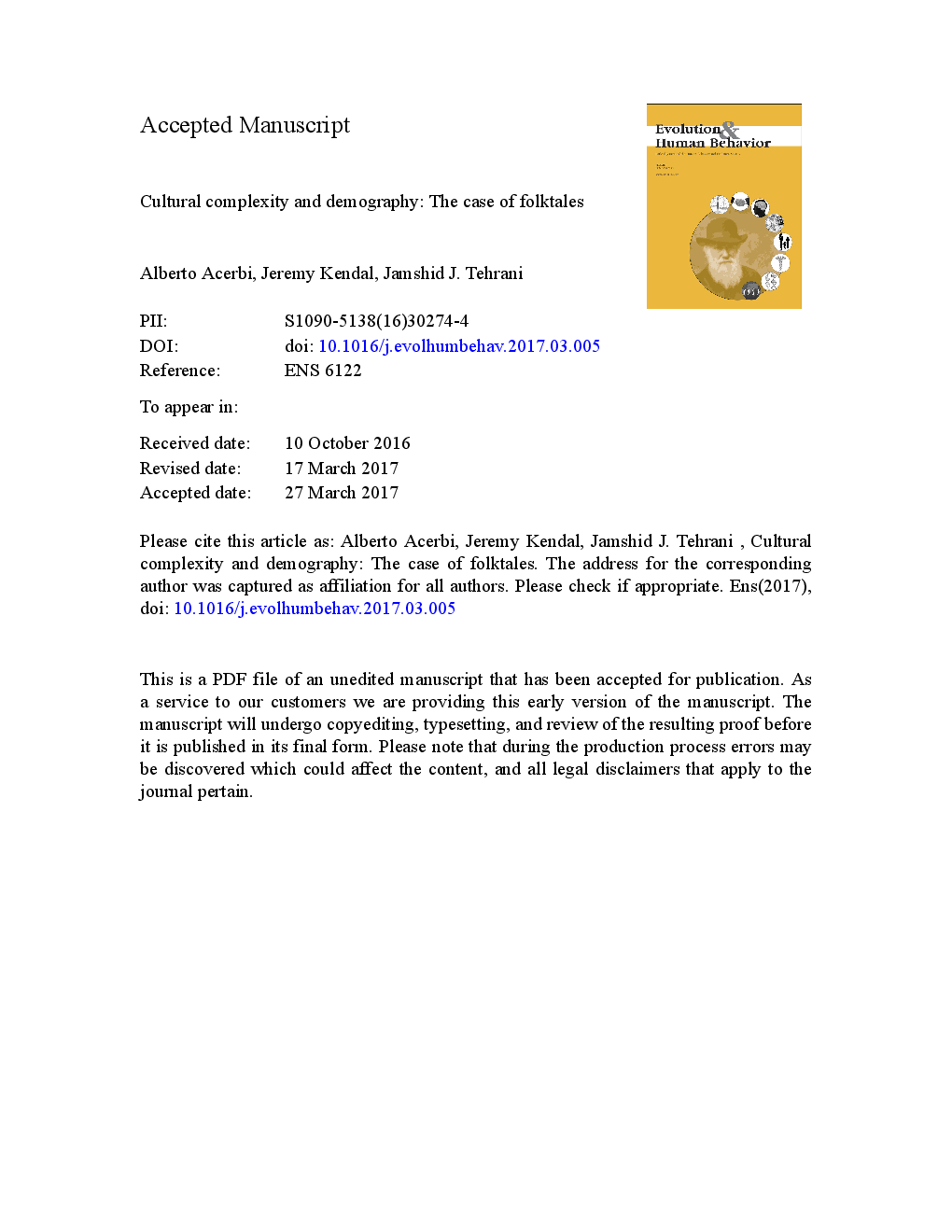ترجمه فارسی عنوان مقاله
پیچیدگی فرهنگی و جمعیت شناسی: مورد قصه ها
عنوان انگلیسی
Cultural complexity and demography: The case of folktales
| کد مقاله | سال انتشار | تعداد صفحات مقاله انگلیسی |
|---|---|---|
| 131134 | 2017 | 32 صفحه PDF |
منبع

Publisher : Elsevier - Science Direct (الزویر - ساینس دایرکت)
Journal : Evolution and Human Behavior, Volume 38, Issue 4, July 2017, Pages 474-480
ترجمه کلمات کلیدی
تکامل فرهنگی، پیچیدگی فرهنگی، دموگرافیک افسانههای محلی، جاذبه فرهنگی، تعصبات محتوا،
کلمات کلیدی انگلیسی
Cultural evolution; Cultural complexity; Demography; Folktales; Cultural attraction; Content biases;
ترجمه چکیده
ما رابطه بین پیچیدگی فرهنگی و اندازه جمعیت در یک قلمرو غیر فرهنگی فرهنگی را مورد بررسی قرار می دهیم که برای آن سوابق کمی وجود دارد: قصه ها. ما سه سطح پیچیدگی را برای روایت های عامیانه تعریف می کنیم: تعداد انواع داستان ها، تعداد موتیف های روایت و در نهایت، تعداد صفات در انواع همان نوع، برای دو داستان مشهور که در آن داده های ما از قبل مطالعات. ما ارتباط مثبت بین تعداد انواع داستان ها و اندازه جمعیت، رابطه منفی برای تعداد انگیزه های روایت و رابطه ای برای تعداد صفات پیدا کردیم. فقدان یک رابطه سازگار بین اندازه جمعیت و پیچیدگی در قصه ها دیدگاه جدیدی را در مورد بحث های جاری در تکامل فرهنگی ایجاد می کند. ما پیشنهاد می کنیم که ارتباط بین پیچیدگی های فرهنگی و جمعیت شناسی می تواند وابسته به حوزه باشد: در برخی از حوزه ها (مثلا تکنولوژی) این لینک مهم است، در حالی که در دیگران، مانند قصه ها، سنت های پیچیده می تواند به راحتی در جمعیت های کوچک و همچنین بزرگ، به عنوان آنها ممکن است به تعصب های شناختی جهانی تجدید نظر شود.

